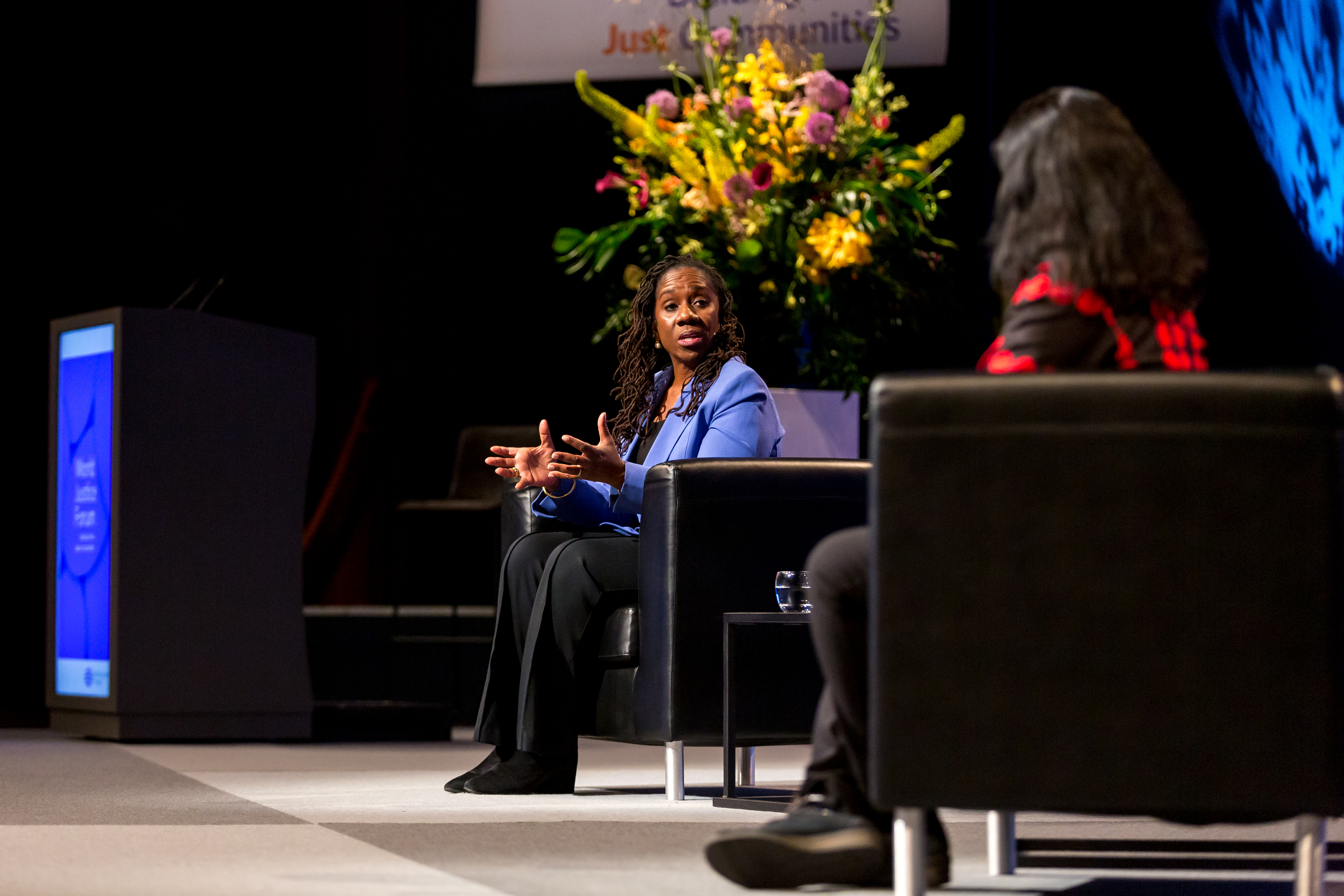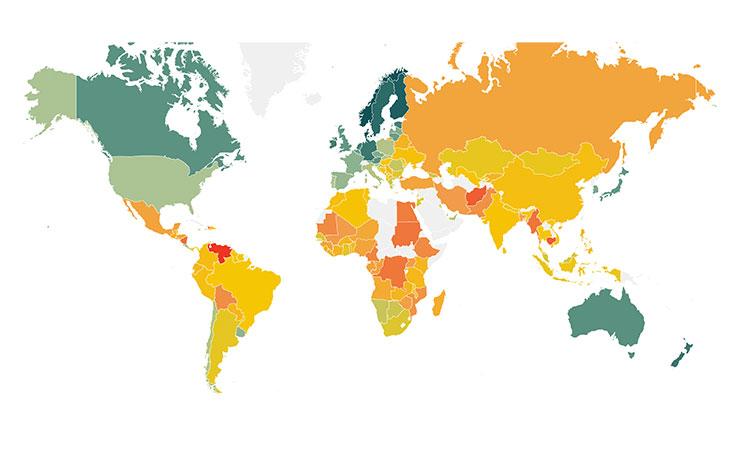

By Sally Aldrich, Program Associate, World Justice Project
In recent years equal rights and non-discrimination protections have weakened, putting at-risk groups in danger of further erasure and marginalization. The 2022 WJP Rule of Law Index points to a rise in discrimination during the pandemic, with 70% of countries and jurisdictions having declined in equal treatment and absence of discrimination. Vulnerable groups already exposed to systemic inequality—such as the LGBTQI+ community, children with disabilities, women, and ethnic and racial minorities—were further marginalized during the crisis, and continue to be left out of solutions to “build back better.” At the World Justice Forum 2022, equal rights leaders, activists, and academics came together to discuss the increasing challenges these groups face, as well as promising solutions to address them.
The need for comprehensive non-discrimination legislation was a common theme that emerged during the week at the Forum. United Nations High Commissioner for Human Rights, Michele Bachelet, stressed the importance of such legislation in her remarks in the Opening Plenary: The Global State of the Rule of Law. “Comprehensive anti-discrimination law holds transformative power” she explained, noting that written policy allows pathways for people experiencing discrimination to seek remedy for the harms they have suffered. Sherrilyn Ifill, a visionary leader on racial justice and equality in the United States, reinforced this idea during the “Ruth Bader Ginsburg Legacy Keynote” by asserting that the creation of law must be guided by how the law actually works in the lives of those most marginalized.
Multiple working session speakers echoed the sentiment of adopting anti-discrimination policies and laws. In the session “Intersectional Discrimination in a Post-Covid World: Violations, Solutions, and Actions,” Lauren Avery of Minority Rights Group International highlighted the importance of legislation that acknowledges the intersectionality of marginalized identities, as opposed to recognizing multiple forms of discrimination in an additive way. Speakers in “The Role of People Centered Justice in Delivering Equality and Inclusion” agreed that enforced legislation is necessary, but added that it will be most effective if we simultaneously dismantle harmful stereotypes and misinformation about vulnerable groups.
The importance of gathering consultative, local, and people-centered data to safeguard fundamental rights was another key issue discussed during the Forum. The Red Dot Foundation, winner of the Equal Rights and Non-Discrimination category in the World Justice Challenge, crowdsourced community data on sexual assault across India to create an open data platform and a dataset that had previously never existed. The reporting platform inspired new avenues for organizing and engaging local communities in sexual assault awareness. Speakers in the “Plenary: Defining Challenges and Setting Priorities” also focused on the importance of granular data. Maja Daruwala, the Chief Editor of the India Justice Report, explained why local and disaggregated data matters to truly understand different lived perspectives in each community, while Steve Crown of Microsoft called for a specific focus on regional data collection, especially in rural areas. In the working session “Access to Justice for Women with Intellectual and Psychosocial Disabilities in Asia and the Pacific,” speakers addressed the importance of a legal needs survey that would shed light on the specific challenges that community faces. Women with disabilities are often considered incapable of representing themselves, and due to this misconception are prevented from taking part in legal decisions that affect them. A consultative legal needs survey for this group would help identify these types of barriers and combat the invisibility they face in the judicial system.
Throughout the week, participants emphasized the necessity of incorporating principles of equality and non-discrimination into approaches to address the Forum’s other two themes: Access to Justice and Anti-Corruption and Open Government. Jim Fitzgerald, the Director of the Equal Rights Trust, underlined the findings of a recent joint study his organization conducted with Transparency International, which found that corruption and discrimination are mutually reinforcing. In a working session on the proposed establishment of an International Anti-Corruption Court, Dutch Foreign Affairs Minister Wopke Hoekstra also pointed to this link, noting that countries with the highest rates of corruption also tend to have poor human rights records.
There was a clear push for more people-centered solutions to help combat discrimination in the justice sphere as well. Syrine Boukadida, a queer feminist activist based in Tunisia, called for more spaces for representation of vulnerable populations in judicial practices. During her keynote remarks Sherrilyn Ifill discussed the importance of having civil rights lawyers in the United States Supreme Court, noting that they are best equipped to understand how race, sex, gender, class, and other identity factors interact with the law. Many World Justice Challenge finalist projects also focused on the intersection between justice and equal rights. DC Justice Lab uses evidence-based research to draft laws and policies to reform the racially-imbalanced criminal justice system in the United States; Documenta, Analisis, y Acción para la Justicia Social connects justice facilitators with persons with disabilities in Mexico to allow them to participate fully in judicial proceedings; and The International Legal Foundation and Public Defender Society of Nepal created a joint project that helps secure the release of poor and marginalized children from overcrowded detention centers.
The World Justice Forum Final Statement outlines the main goals and ideas discussed at the Forum, and highlights the key recommendations and outcomes of the event. To ensure equal rights and combat discrimination, the statement calls for: the adoption and implementation of comprehensive anti-discrimination laws; commitment by governments, private sector, and civil society to advance gender justice and adopt “equality by design” approaches to decision making; and efforts from civil society and governments alike to make the protection of civic space a key pillar of foreign policy and international coordination.






